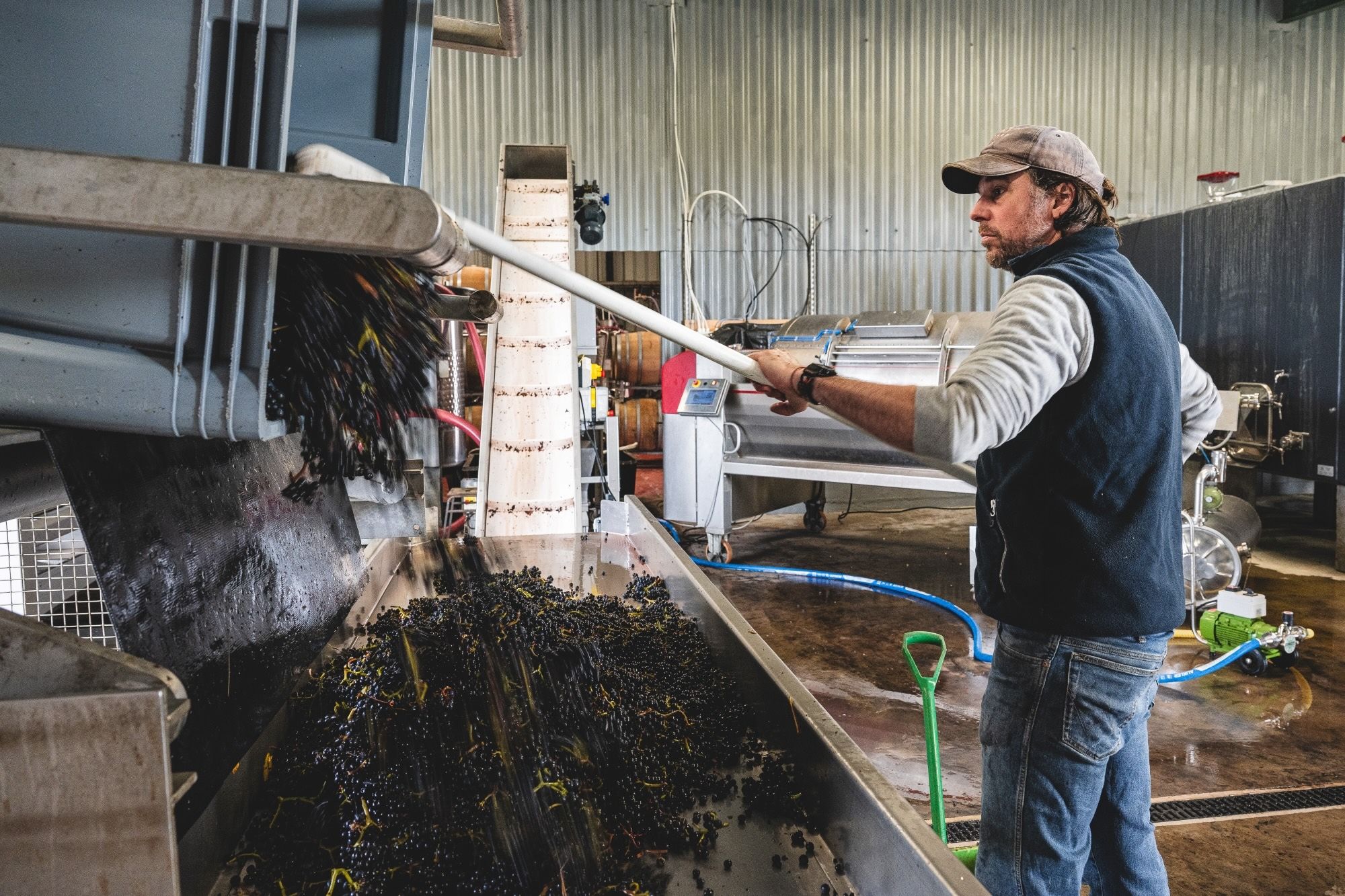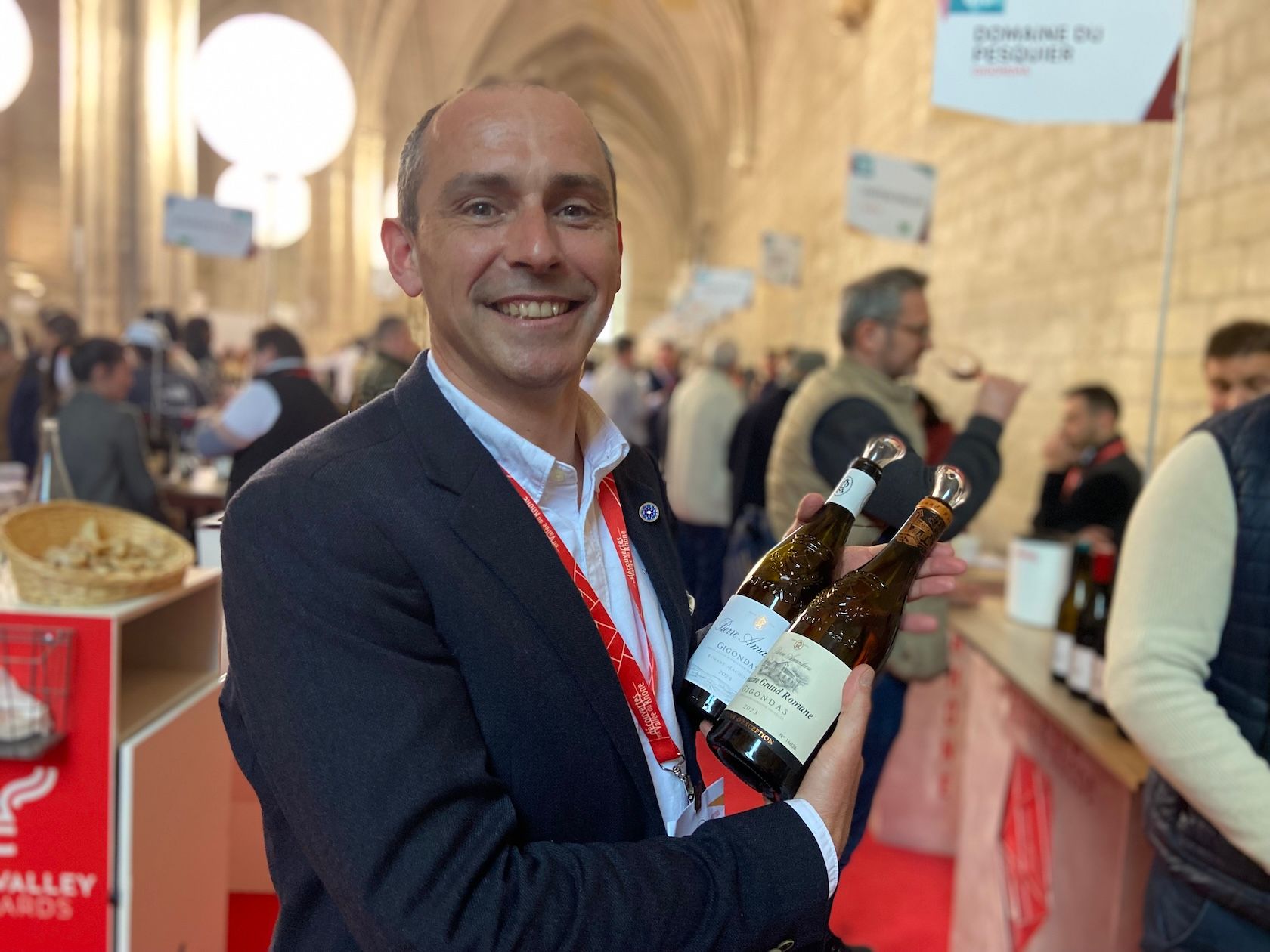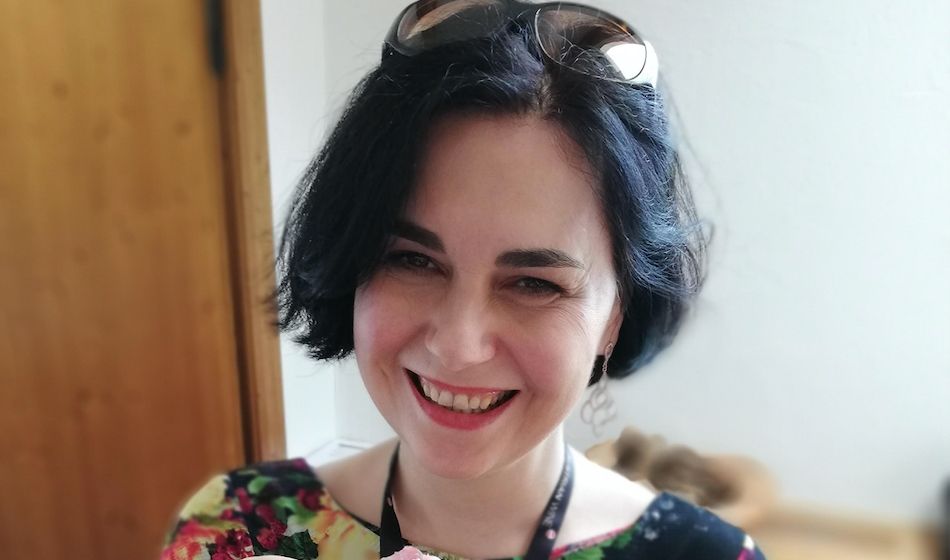Sustainable Wine Solutions is looking to take the lead on pushing and promoting re-usable, re-fillable and returnable wine services, reports Robert Mason.
As William Shakespeare noted, the theatre “holds a mirror up to nature”. It therefore seems fitting that The Royal Court Theatre is the venue for the day the wine industry holds a mirror of its own up to society.
Two decades ago, sustainability in wine was a mere glimmer in the glass. The notion of organic and biodynamic viticulture in wine was almost unheard of, resigned to heretics and hippies. It didn’t take long for climate change to rear its ugly head, proving the sceptics wrong. Wine as we know it must fundamentally change or we risk losing our beloved vinous liquid altogether.
Organic and biodynamic viticulture was just the beginning of this vast and important topic. Much has been published in trade press and international media on the viticultural benefits of sustainable winemaking. But, this is just the tip of the iceberg. The formation of organisations such as the International Wineries for Climate Action, Sustainable Wine and the Porto Protocol has given rise for producers, distributors and notable individuals from the wine trade to tackle this seismic global conundrum.
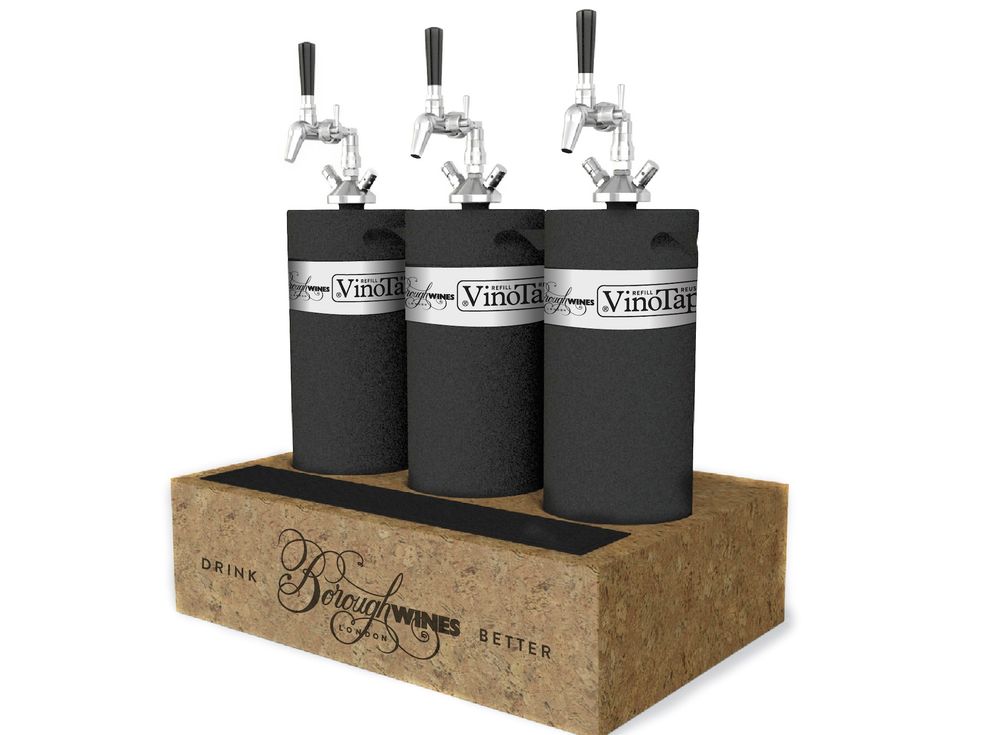
Is this the way forward for serving wine? Borough Wines’ VinoTap™ from Sustainable Wine Solutions
Yet, how can mainstream bars, pubs and independent venues replicate the same ethics as the might and resources of producers such as Miguel Torres, Symington Family Estates, Lanson and Constellation Brands?
Very few venues have the infrastructure to go beyond just simple separation of recyclable materials. Instead, restaurants and bars are at the mercy of industrial waste companies, some of whom may not necessarily recycle every glass bottle. For every one tonne of glass recycled, 246kg in CO2 emissions are saved. UK glass recycling currently sits at 76%, with a target of 90% by 2030. But what of the remaining 24%? [British Glass Organisation 2022].
When glass is crushed for recycling (also known as Cullet) it can dramatically vary in base quality levels. If the quality grade falls below a certain usable level, the lower quality cullet may end up playing a bit-part in the building sector as aggregate or its legacy is to be lost to landfill.
If recycling was just the beginning, how can we as an industry do more?
The way forward
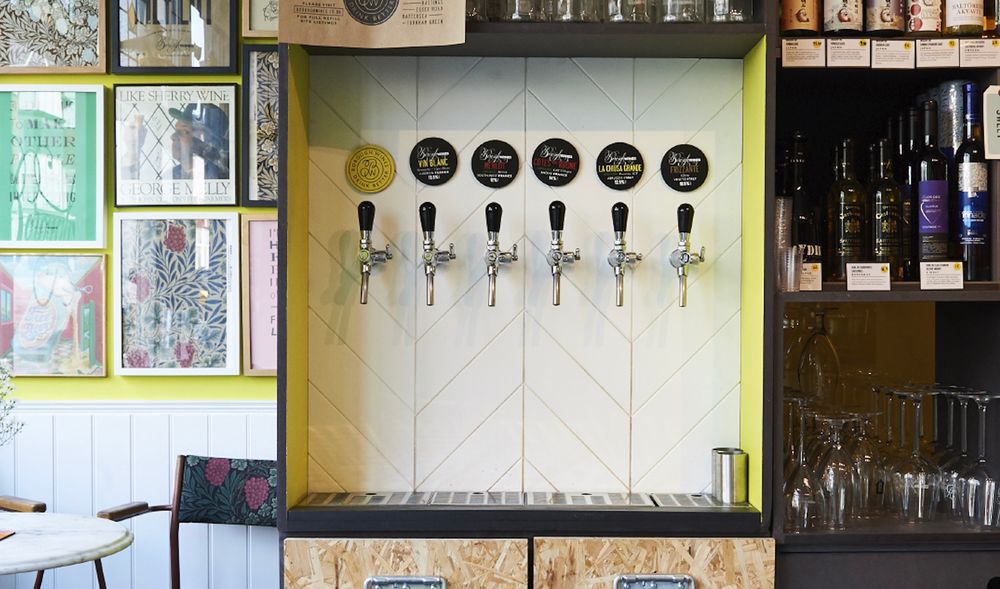
Sustainability is changing the way we make, distribute and serve wines to consumers, driven by dedicated businesses such as Sustainable Wine Solutions
The answer lies within the problem. It was only at the Sustainable Wine Solutions portfolio tasting on February 22 that things started falling into place.
Sustainable Wine Solutions (SWS) is the natural progression and next step in the evolution of Borough Wines. Founded in 2002 by Muriel Chatel, the concept of sustainable wine service was a new one for the UK trade at that time. The notion of ‘wine on tap’ with the prospect of refilling carafes and bottles harks back to the traditional cellar door: queuing on a muggy evening awaiting gallons of weekend plonk. However, the practical applications and this ability to create a genuine circular economy for trade, promotes an altogether more interesting vision.
SWS are the only wine wholesaler in the UK to use the reusable eco-friendly 25-litre keg from Ecofass for draft wine. The disposable and recyclable inner bag is made from HDPE thermoplastic polymer which is not only highly recyclable, lightweight and durable but is also resistant to moulds, mildew, bacteria and other unwanted nasty taints in wine.
In addition to the Refill Keg, SWS have the smaller VinoTap™, the wine comes pre-tapped in a self-contained 20-litre stainless steel mini-keg. Again, all returnable and reusable.
However, perhaps the most interesting of sustainable innovations for trade and consumers alike originates in the birthplace of the modern standard bottle: Bordeaux.
Driving change
Enter Stage Right: Damien Barton of the Léoville-Barton dynasty. A true pioneer of the circular economy. Barton approached SWS to develop and market the first large-scale refill bottle scheme. Similar in many ways to the old-fashioned milkman, bottles are returned for cleansing, sterilisation and refilling ready for next dispatch. Twenty-nine lines of the range are shipped in bulk and bottled to market. Each wine being from sustainable vineyard sources, organic/biodynamic, with a small portion classified as ‘natural’ wines. Largely focusing on traditional old-world wine producing nations, the range is unique to UK trade.
Speaking to Barton, his initial concept is to make “the bottle part of the solution”. Each bottle can be reused an impressive 30 times before it must eventually be recycled, reducing the carbon footprint of each bottle by up to 95%. “Too much pressure is put on the consumer to recycle, to reduce the carbon footprint. It is the responsibility of the [wine] industry to lead by example…it is important to educate the consumer to understand sustainability,” he explains.
By creating a viable alternative to recycling and one with a distinct advantage for the trade as a means to tangibly contribute, this could really be the catalyst for meaningful change in the industry.
However this is no new thing. Small, family-owned merchants, such as The Soho Wine Supply in central London, were shipping and bottling thousands of hectolitres in the 1970s and 80s. From Chianti to Claret, Landwein to the Languedoc, each wine was hand labelled giving an air of “limited edition” to each bottling.
Time to act
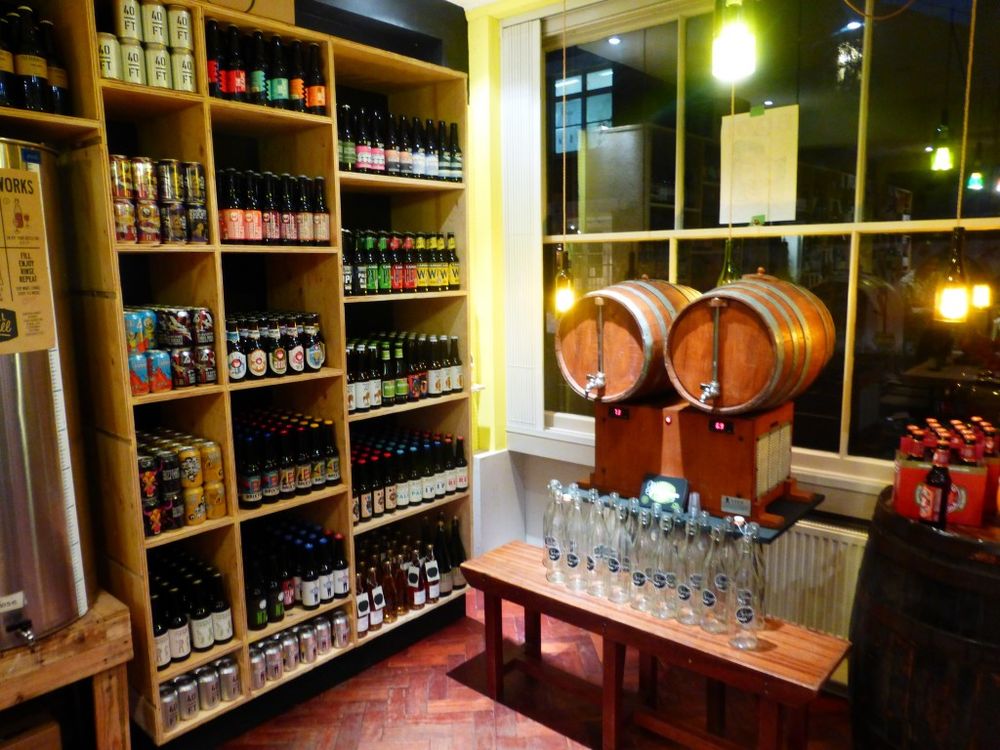
Refill bottle scheme in action at Borough Wines on Columbia Road in London
Fast forward 40 years and what started off as a sensible commercial decision, now is imperative. Sustainable Wine Solutions deliver each order in recycled plastic crates while simultaneously collecting the empties. Each bottle is then transported to their bottling facility at North Greenwich where labels are removed, bottles are cleaned and sanitised at 200°C, refilled, relabelled with sustainable and natural coconut glue, “signed” with a white chalk stripe, sealed with TCA free DIAM® technical cork closures and, pleasingly, no pesky foil capsules either.
“Once there is a demand, the rest will follow” says Damien Barton. First and foremost, supply must meet demand. The market is ready. Berry Bros & Rudd recently entered the fray with their first own-label Châteauneuf-du-Pape to be packaged ‘sans capsule’. Even the chair of BBR, Lizzy Rudd, condemns bottle foils as “superfluous” [Drinks Business Nov.2021].
As with all good theatre, a lead must always be held by a good supporting cast. The bottle is the undeniable ‘star’ with the liquid playing the best supporting role.
Within the portfolio on show were three very good non-vintage still wines. Long seen as the eccentric uncles of the wine world. Hitherto paraded about as pariahs and talked about in hushed furtive whispers. Non-vintage still wine deserve due recognition as the ultimate insurance policy against poor and disastrous vintages. It is the logical next step for sustainability.
I was also very impressed by the “Bistro” range of wines at the tasting. These are effectively the “House” wines recommended by SWS. Based upon the traditional, and correct, parlance that the wines offer incredible value and hold the added virtue of being deliciously quaffable. And these wines massively over-deliver.
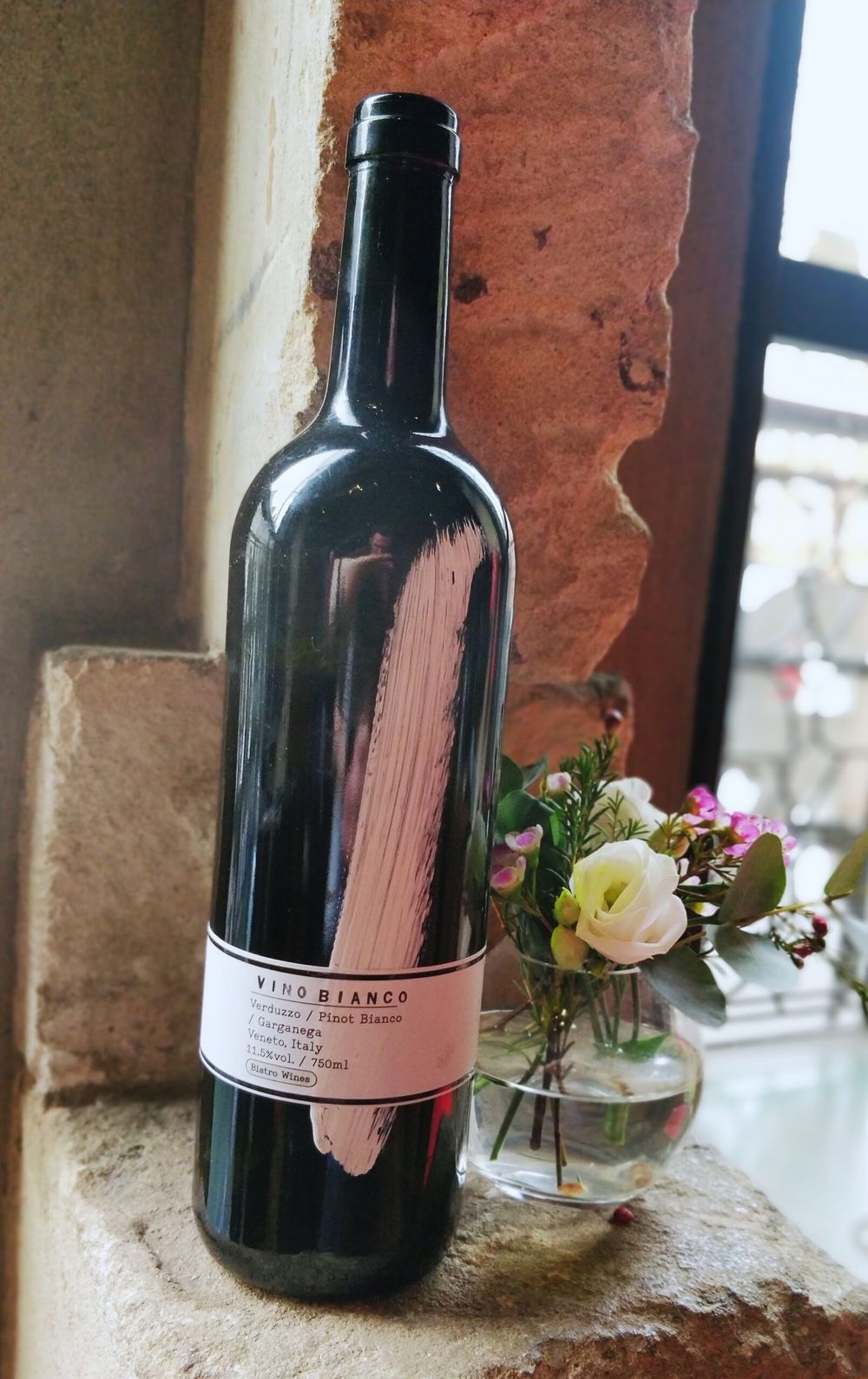
Robert Mason was particularly taken by the Vino Bianco NV at Sustainable Wine Solutions recent London tasting
The Vino Bianco NV was of particular merit. Made from a blend of Verduzzo, Pinot Bianco & Garganega (and, of course, a blend of vintages too) from Vinicola Serena in the Veneto region of Italy. Exceptionally fresh with gentle citrus, stone fruit and a deft hit of weight, making it feel that it could almost be from the Soave DOC.
Second, was the Bistro VDF Rouge NV made by Vignoble Castets in South West France. Cabernet Sauvignon and Tannat combine beautifully to produce a relatively low a.b.v. wine, at just 12.5% particularly considering the varietals at work. Flavours of smoked meat, brooding dark fruit with a deep and dense texture.
Moving more into conventional spheres, the three other sections of the portfolio offered something for everyone: Organic, Artisan and Natural.
Special mention must be made for two exceptional ‘natural’ wines of great structure, complexity and regional typicity. Firstly, the outstanding Gamay from Athlete du Vin in the Loire: rustic, bright red fruit, very long and very good. Secondly, Tre Monti’s Albana di Romagna orange wine from Emilia-Romagna: marzipan, orange peel & blossom, russet pears, spice and a touch of tannin.
The highlight of the Organic range is, surprisingly, a 100% still Xarel-lo from Catalunya. Unique, slightly oxidised style with spice, tomato leaf and crunchy green apple profile. Sublimely savoury.
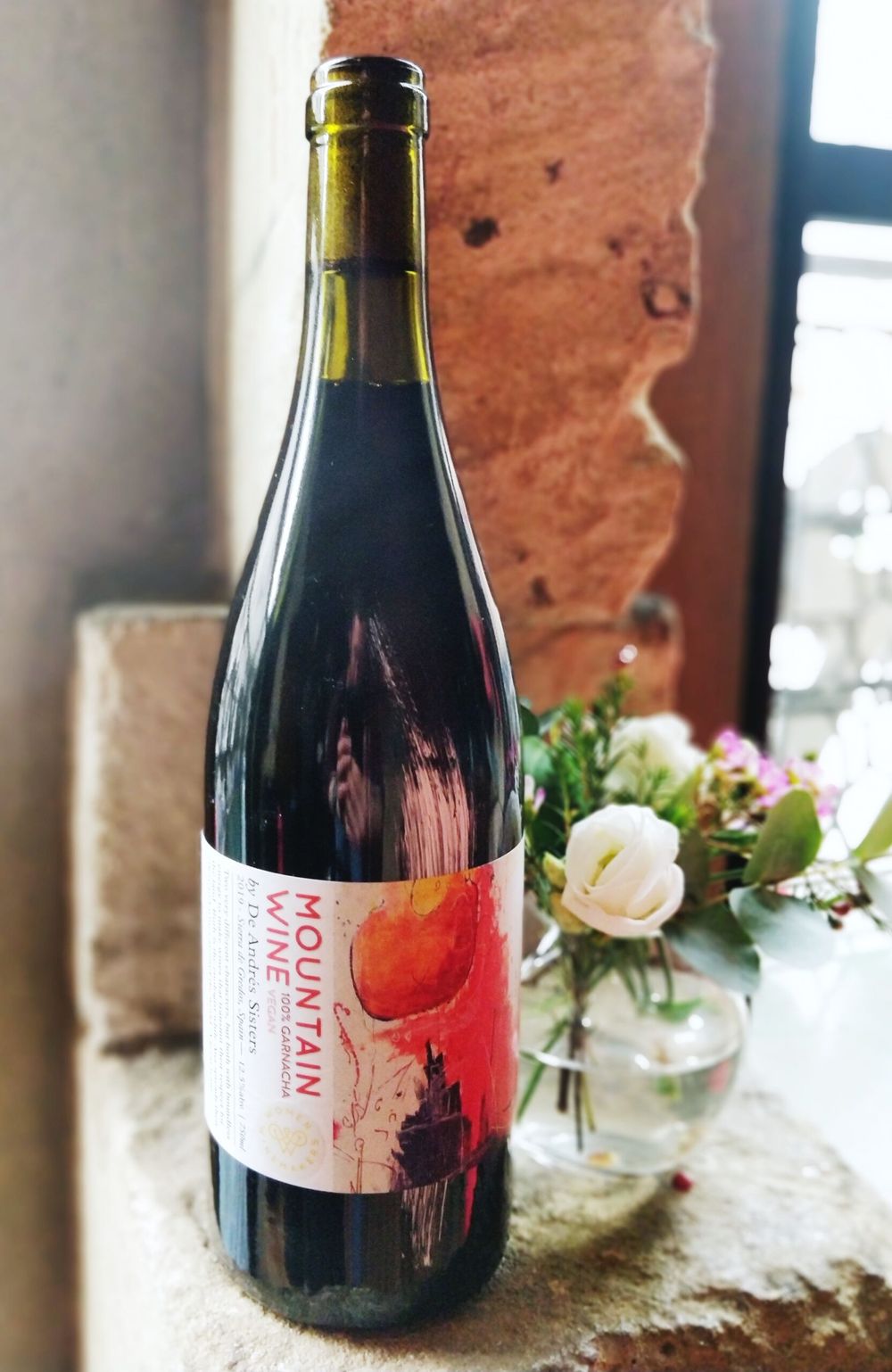
The Mountain Wine stood out in the ‘Artisan’ range of wines
From the Artisan range, standouts included: ‘Paradoxe de Malbec Blanc’ 2020, ‘Incognito’ Moulis-en-Médoc 2019, Quinta dos Capuchos Lisboa Touriga Naçional 2020 and ‘Mountain Wine’ Garnacha from De Andrés Sisters.
Plus, Damien Barton’s collaboration with Benjamin Joyeux of the “225” 100% Merlot Rosé. Light Provençal pink, delicate and complex with incredible freshness and depth of flavour. It would give the famous pink-province a good run for its money.
Finally, what could be more sustainable than some beautiful British Bacchus? Made by the charismatic and highly knowledgeable Clive Barlow MW to accompany a very masterful ‘Made in England’ Rosé, sourced from sustainable, obscure and miniscule plots just outside Canterbury in Kent. Both wines are very English and very elegant.
I was not only impressed, but inspired. I left the tasting with an optimistic skip in my step (and rosy cheeks). A fellow wine professional summed up the future of our industry perfectly: “Sustainability is inclusive not exclusive”.
- You can find out more about what Sustainable Wine Solutions is doing at its website here.



